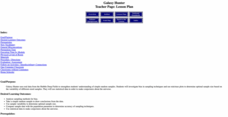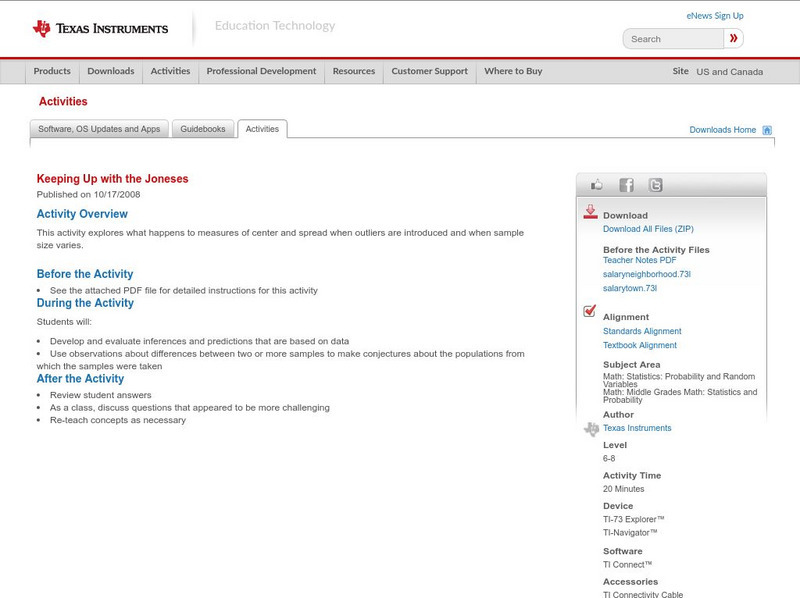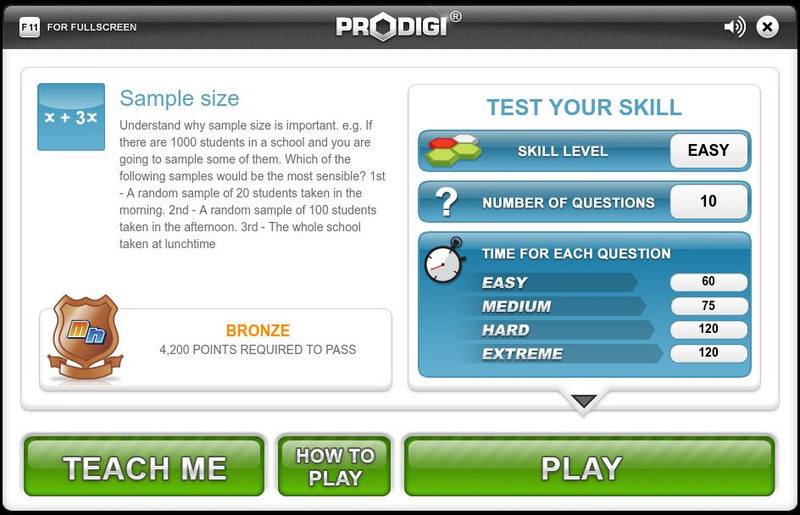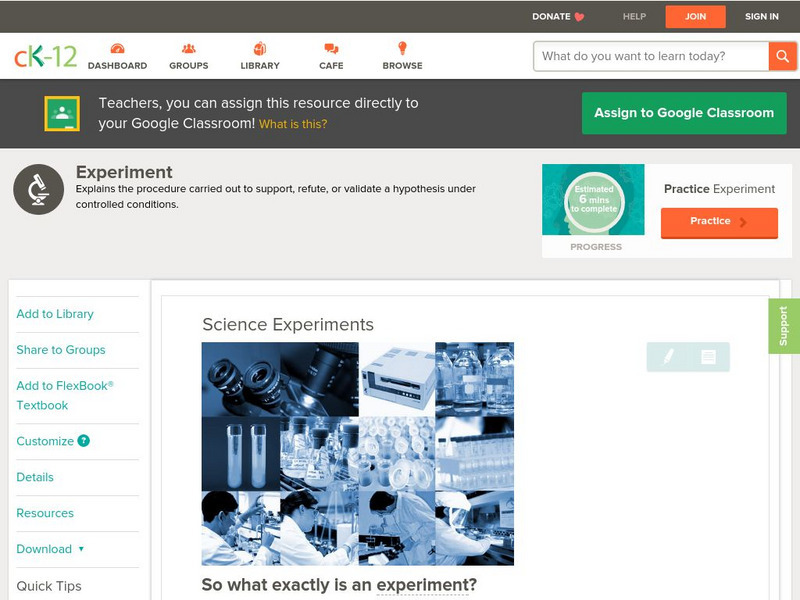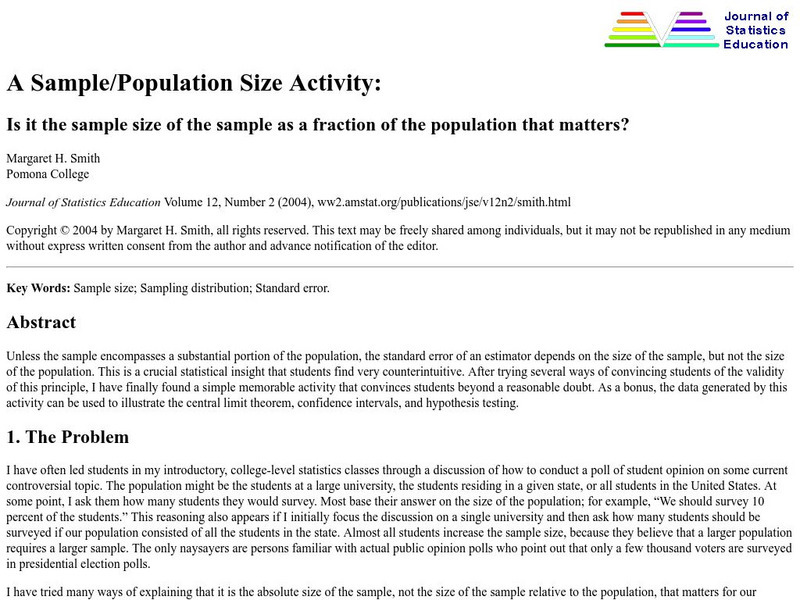EngageNY
Margin of Error When Estimating a Population Proportion (part 2)
Error does not mean something went wrong! Learners complete a problem from beginning to end using concepts developed throughout the last five lessons. They begin with a set of data, determine a population proportion, analyze their result...
EngageNY
Margin of Error When Estimating a Population Proportion (part 1)
Use the power of mathematics to find the number of red chips in a bag — it's a little like magic! The activity asks learners to collect data to determine the percentage of red chips in a bag. They calculate the margin of error and...
EngageNY
Sampling Variability in the Sample Proportion (part 2)
Increase your sample and increase your accuracy! Scholars complete an activity that compares sample size to variability in results. Learners realize that the greater the sample size, the smaller the range in the distribution of sample...
EngageNY
Sampling Variability in the Sample Proportion (part 1)
Increase your sample and increase your accuracy! Scholars complete an activity that compares sample size to variability in results. Learners realize that the greater the sample size, the smaller the range in the distribution of sample...
EngageNY
Using Sample Data to Estimate a Population Characteristic
How many of the pupils at your school think selling soda would be a good idea? Show learners how to develop a study to answer questions like these! The lesson explores the meaning of a population versus a sample and how to interpret the...
EngageNY
Margin of Error When Estimating a Population Mean (part 2)
Don't leave your classes vulnerable in their calculations! Help them understand the importance of calculating a margin of error to represent the variability in their sample mean.
EngageNY
Margin of Error When Estimating a Population Mean (part 1)
We know that sample data varies — it's time to quantify that variability! After calculating a sample mean, pupils calculate the margin of error. They repeat the process with a greater number of sample means and compare the results.
EngageNY
Sampling Variability in the Sample Mean (part 2)
Reduce variability for more accurate statistics. Through simulation, learners examine sample data and calculate a sample mean. They understand that increasing the number of samples creates results that are more representative of the...
EngageNY
Sampling Variability in the Sample Mean (part 1)
How accurate is data collected from a sample? Learners answer this question using a simulation to model data collected from a sample population. They analyze the data to understand the variability in the results.
Willow Tree
Data Sampling
Some say that you can make statistics say whatever you want. It is important for learners to recognize these biases. Pupils learn about sample bias and the different types of samples.
Stats Monkey
Everything I Ever Needed to Learn about AP Statistics I Learned from a Bag of M and M's®
Candy is always a good motivator! Use this collection of M&M's® experiments to introduce statistics topics, including mean, standard deviation, nonlinear transformation, and many more. The use of a hands-on model with...
Curated OER
Galaxy Hunter - A Cosmic Photo Safari
Space science stars journey through our night sky and take virtual photos of galaxies to investigate simple random samples. Higher math is used to analyze the data collected. Copy the evaluation/assessment questions onto a handout...
Curated OER
Sampling Rocks
Students collect and sort rocks based on visible characteristics. In this statistics lesson, students determine adequate sample size and categorize rocks based on characteristics. The book Everybody Needs a Rock is read to...
Curated OER
Education for Global Peace
Students survey the class and graph the results. In this graphing and data collection lesson, students conduct a survey to see where their shirts were produced. Individuals use software to graph the results and create a written...
Curated OER
Making Connections
In this experimentation worksheet, students review the steps of setting up an experiment, determining the correct procedure and analyzing the data. This worksheet has 23 fill in the blank questions.
Science Buddies
Science Buddies: Estimation and Population Size
Have you ever wanted to take a short cut? How about when doing your math homework? In this experiment you can learn how estimation can save you time doing math calculations. But beware, some estimations are better than others. Can you...
Other
Stat Soft: Getting Started With Statistics Concepts
Definitions of the basic concepts in statistics. Great for review and discussion or for introduction into topics.
Texas Instruments
Texas Instruments: Why Aren't There More Reds in My Bag?
Students use small bags of M&M's to make predictions, gather data, and display color distribution results in a circle graph. They explore the concept of ratios and sample size.
Texas Instruments
Texas Instruments: Keeping Up With the Joneses
This activity explores what happens to measures of center and spread when outliers are introduced and when sample size varies.
Space Telescope Science Institute
Amazing Space: Galaxy Hunter
Journey to the wildest regions of space, and wrestle with cosmic giants, galaxies. Explore the Hubble Deep Fields from a statistical point of view.
Mangahigh
Mangahigh: Data: Sample Size
This site provides students practice with the concept of sample size. Students can learn about the topic by completing an interactive tutorial. Students can then take a ten question timed test to practice the skill.
American Geosciences Institute
American Geosciences Institute: Earth Science Week: Monitoring Life in the Rocky Intertidal Ecosystem
This activity will allow learners to learn the sampling techniques used in the field by citizen scientists who participate in LiMPETS, five national marine sanctuaries along the West Coast.
CK-12 Foundation
Ck 12: Biology: Science Experiments
[Free Registration/Login may be required to access all resource tools.] Introduction to scientific experiments.
Other
Journal of Statistics Education: A Sample / Population Size Activity
The author of the article admits having had a difficult time in the past when getting students to understand that samples need to contain a substantial portion of the population. Here, an activity is detailed to bring this important fact...













